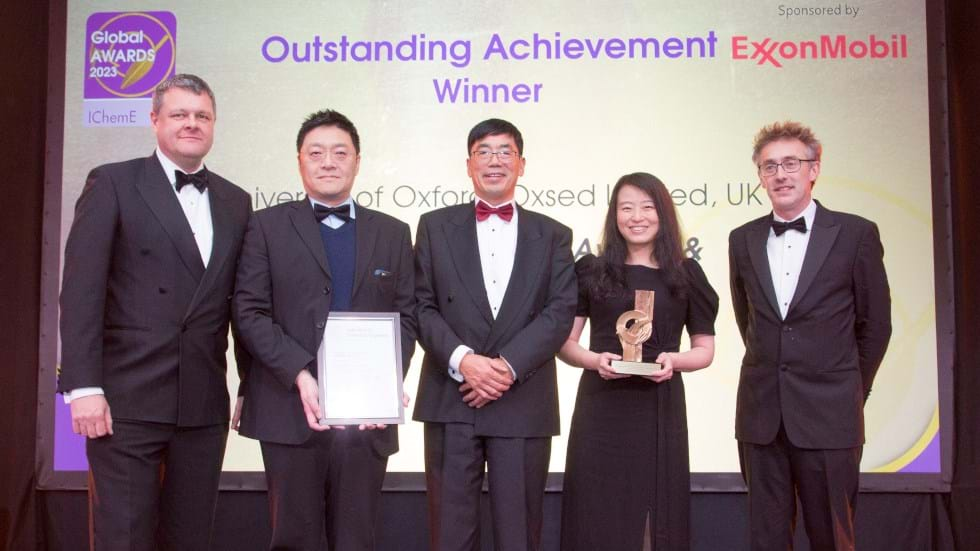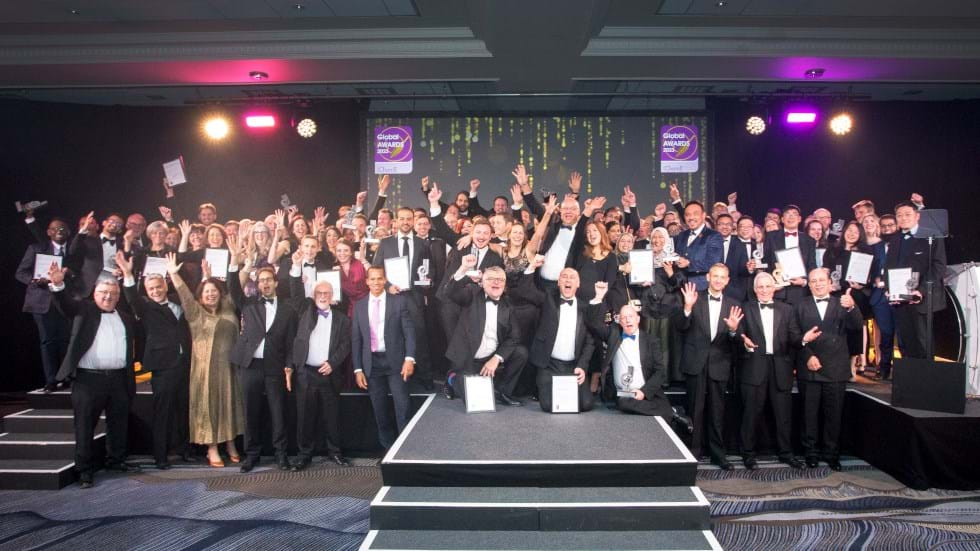Oxford’s rapid Covid test wins top prize at IChemE Awards

THE University of Oxford has been given IChemE’s outstanding achievement in chemical and process engineering award for a rapid Covid-19 test developed in the early stages of the pandemic that enabled freedom of travel.
The team, led by chemical engineering professor Zhanfeng Cui, pooled its expertise in biological engineering, bioprocessing and product design to develop a test kit that can identify whether a person is infected and still infectious without having to wait for lengthy analysis.
The team started developing the test in the early stages of the Covid-19 pandemic after flying to the UK from China.
“We started from 23rd of January 2020. The reason I remember that day is because it was Chinese New Year’s Eve and also was the day that Wuhan started to lock down,” Cui said.
“China was highly alert. If you went anywhere, people asked ‘Where have you been?’. They tested your temperature…but when we flew back to Heathrow airport, nobody asked any questions at all. So, we thought, OK, there is a need for this [test].”
The commercialised test went on to be used by trained personnel who took a swab from travellers and then tested it in a lab next door.
“The quickest you can get out of Heathrow is about 30 minutes from getting off the plane and picking up your luggage. That's why I set the target for 30 minutes to get the result.”
Cui said it was hugely satisfying to see the test in action once it launched at London Heathrow in October 2020. There were earlier smaller trials involving cricket and Premier League football players, and the test went on to be used in Hong Kong too. All told, millions of tests were conducted using the team’s technology.
“This was the only test at that time that enabled international travel.”
Asked what the key challenges were in the development of the technology, Cui said there were three key aspects. First was designing in a molecular switch to control the reaction and eliminate false positives. The second was the use of freeze drying to prevent the test products from having to be kept frozen to halt their degradation. This made it easier to transport and store the tests. Third was product design to successfully scale up the manufacture of the test.
Cui said: “We are thrilled for this recognition. This is great for Oxford chemical engineering. It also demonstrates that chemical engineers take social responsibility seriously and can do anything. Hopefully it will inspire younger generations to come to the profession.”
Their work, which was commercialised through the spinout Oxsed, won the business start-up award and innovative product award before clinching the overall prize.
The IChemE judges deemed the entry a worthy winner thanks to the significant social impact and economic returns that the team provided, alongside their clear demonstration of the direct contribution that chemical engineers made to combating the pandemic.
Safe CCS, D&I and SMRs
In all 19 awards were presented at a ceremony held yesterday evening in Birmingham, UK. Among the 100 finalists were winners and highly commended entries from around the world, including Trinidad and Tobago, the US, Saudi Arabia, China, Portugal, Australia and Malaysia.

Other winners included the consultancy, Kent. It won two awards, including the process safety award for helping design a carbon dioxide transportation and storage project. PM Group won the diversity and inclusion (D&I) award for its programme that seeks to make D&I the responsibility of all its staff.
Rolls Royce lifted the energy award for their work developing a small modular nuclear reactor (SMR), the first unit of which is expected to begin operation in the early 2030s. A combined entry from British Bakels and the universities of Newcastle and Teesside won the process automation and digitalisation award for their inline near-infrared measurement technology that predicts the quality of food products during manufacture, eliminating human intervention.
Billie Hiew Yan Zhang of Heriot-Watt University Malaysia won the young researcher award for his work involving nanotechnology, environmental pollution control, and biomass processing, while Matt Chadwick of ExxonMobil won the young industrialist award. Chadwick supervises production at Fawley refinery and is an active volunteer on diversity and STEM outreach.
IChemE president Nigel Hirst said: “It’s very encouraging that many of tonight’s finalists are helping to make IChemE’s vision – engineering a sustainable world – a reality, with entries such as accelerating the adoption of green hydrogen, reinventing the way plastics are used and recycled, and developing energy-efficient ship hull coatings.”
For a full list of the winners and highly commended finalists, visit the IChemE website.
Recent Editions
Catch up on the latest news, views and jobs from The Chemical Engineer. Below are the four latest issues. View a wider selection of the archive from within the Magazine section of this site.




